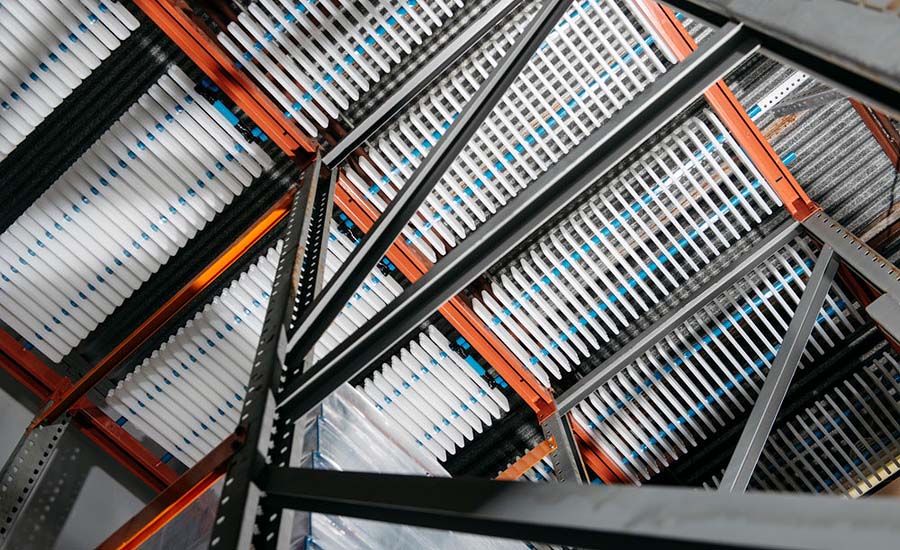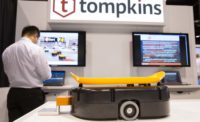Viking Cold Solutions, Houston, Texas, announced a collaboration with Salt River Project (SRP), Tempe, Ariz., to install and evaluate the performance of Viking Cold Solutions' environmentally friendly thermal energy storage (TES) system at Bashas' Phoenix, Ariz., distribution center.
This low-impact sustainable system is expected to offer significant energy savings, energy demand management and heightened protection for frozen food products. It also reduces energy distribution and delivery challenges for SRP by shifting energy demand to night hours. The passive TES system stores energy at night for subsequent day use, enabling less refrigeration runtime and reduction of load during peak afternoon hours.
"We are very pleased to support this project with Bashas' and Viking Cold Solutions, and to evaluate a technology that shows potential as an energy management tool for us and our customers," says Nathan Morey, manager of SRP product development. "SRP is excited to learn more about thermal storage technologies, which can provide energy savings for customers with industrial freezers like Bashas and provide long-term benefits to all customers by reducing peak demand during summer months."
This project includes the installation of the Viking Cold Solutions’ TES system and 24/7 energy monitoring within Bashas' ice cream freezer at their distribution center.
"We continuously evaluate energy efficiency opportunities, as refrigeration is one of our highest operating expenses. We support technologies that provide greater temperature stability, helping us to continually provide low product prices to our customers. SRP is an innovative power utility, and we are excited about this partnership and glad we were able to come together to fund this project," says Mike Basha, vice president of logistics at Bashas.
SRP will also fund the third-party research analysis for the project, evaluating the TES system's Phase Change Material (PCM) for its efficiency improvements and effectiveness at shifting energy load from on-peak to off-peak hours. SRP collaborated with Arizona State University's (ASU) School of Sustainable Engineering and the Built Environment, Tempe, Ariz., ,along with Nexant's Utility Services Group, Boston, to measure the results of the project and extrapolate the potential impact of this technology on additional low temperature refrigeration loads in the Phoenix area.
"Our students are excited to learn more about the potential energy savings and demand reduction impact of this innovative technology, as well as how it can be deployed in more facilities to support reductions in the Phoenix area's peak load," adds Kristen Parrish, ASU assistant professor.
"Cost effectively managing growing power grid demand and providing reliable and reasonable power prices to customers requires innovative solutions and collaboration from all parties – utilities, academia, industrial customers and technology providers. We anticipate that this project will provide a roadmap for deploying high-impact demand reduction solutions to refrigeration loads that were not previously accessible. As part of our commitment to cold chain sustainability and reducing environmental impact, we are honored to be the enabling technology," says James Bell, chief executive officer of Viking Cold Solutions.



